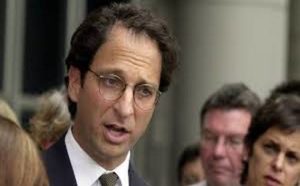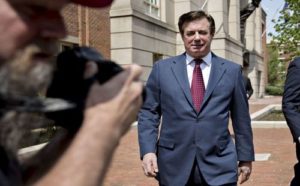God did not overlook the corruption in Noah’s day: “Then the Lord saw that the wickedness of man was great in the earth, and that every intent of the thoughts of his heart was only evil continually” (Genesis 6:5). In judgment for sin, God promised to send a Flood to destroy man and the earth (Genesis 6:13, 17).
Most people today would agree society is also corrupt, filled with school shootings, business scandals, and crime. Yet they would blame the problem on poverty, government, or a lack of education. The average person sees himself as pretty decent. Surely on Judgment Day, God would allow such a “good” person into heaven, right? Jesus, however, said no one is good except God (Mark 10:18; Romans 3:10–12). Paul’s list of serious sins, such as loving self, money, and pleasure more than God, accurately describes our world today (2 Timothy 3:1–5).
We’re all born dead in our sins, following Satan to pursue selfish desires as “children of wrath” (Ephesians 2:1–3). We deserve God’s wrath (Matthew 10:28; Romans 3:23, 6:23). While God promised never to send a worldwide Flood again, He is going to send a consuming fire (2 Peter 3:1–13).Source
Rajat Gupta, one of the famous and most sought-after consultant once, has been the most successful among post-1970s Indian immigrants in the United States. He is a no stranger to the readers of business and corporate crime. After reaching the pinnacle of success in his field by becoming the youngest managing partner of consulting firm McKinsey at 45, Mr Gupta caught the attention of the successive waves of Indian immigrants to the United States. However, as is well recorded, a slew of calls turned his world upside down, making him end up prison for two years for allegedly sharing confidential information of Goldman Sachs to Galleon Hedge Fund founder Raj Rajaratnam—a charge he still denies.
Seven years after he was charged with criminal offence, Mr Gupta speaks about the dark days his life and more. Excerpts from an interview.
All your problems that you faced in your life were caused by one bad friend. In hindsight, what do you think about getting acquainted with Raj Rajarat-nam?
In hindsight, basically I am a very trusting person. By and large, it is a good way to lead one’s life. You trust people and they trust you. They do many things for you. As it turned out in this particular case, it was not a good thing. I shouldn’t have trusted this person and consequences were quite harsh. The events shaped up like that not only because of him, but also because of the times and the way prosecution pursued the case. So I can only say in the end that it was destiny. There were many things that if they were slightly different, none of these would have happened.
You got introduced to Raj Rajaratnam by your McKinsey colleague Anil Kumar. When you came to know that Raj Rajaratnam was paying Anil Kumar for inside information, did you think that Anil Kumar had introduced you to Rajaratnam as part of some strategy?
This had happened way before in early 2000s. Actually, Raj Rajaratnam gave a significant donation to ISB. So the first time I talked to him was to just to thank him. I don’t think there was any scheme behind this.
Your acquaintance with Raj Rajaratnam was because of ISB. But you say ISB is dear to you. So have you ever thought that if you had not taken up the ISB project, this person might not have come into your life?
There are so many different things which contributed to the problem in my life. I can tell you ten instances which if it had not happened, I would not have had to undergo this. I had resigned from Goldman Sachs board before the crisis engulfed me but I withdrew it on the board’s request. If I had not withdrawn it, none of this would have happened. Once I discovered that Rajaratnam had taken away all the money that I invested in our partnership firm, if I had sued him — which I didn’t — none of this would have happened.
Everybody was angry with bankers because of the 2008 financial crisis. But they never got any the bankers arrested. If times were different, I don’t think this would have happened.
On the day you visited FBI office for the first time on the Diwali day in relation to insider trading charges, you wrote that you felt that America, which had been good to young immigrants, had turned against you. Why did you say so?
I was in the US for many many years. I give credit to that country for my success. But of course I don’t think the US justice department treated me well.
Initial charge that was brought against you by the US Securities and Exchange Commission (SEC) was administrative and not criminal. Do you regret your decision of not testifying before the SEC when the charge was administrative, which would have prevented all the troubles in your life?
Possible. My lawyers advised me not to testify. And I regrettably listened to them. I had planned to testify both at SEC and during the criminal trial. And I wish I had.
Did you consider plea bargaining?
I did not consider it because I have not done anything wrong. In the plea bargain, you admit that you have done something wrong and seek condonation.
But that would have spared you from the imprisonment.
I may not have gone to the prison if I had plea bargained my way out of this. But this would mean that you are admitting that you have done something wrong. See, most of the damage to my reputation was done when I was charged by the SEC. When the damage was already done, why would I plea bargain? And I wasn’t honestly afraid of the consequences and wanted to fight it out.
Plea bargain was misused a lot. That is the problem with the whole criminal justice system. People admit to crimes which they did not even commit. I met many people in prison who said “Well, they (prosecutors) were going to give me 20 years. And they said if you confess to the crime, you would get only 5 years.”
There is a perception in India that the then New York attorney Preet Bharara, who charged you, had been unfair to Indians. Do you agree with this proposition?
I think it was more demonstrated by what he did in the case of Indian consul general (Devyani Khobragade). Whether he did it in my case because I am an Indian, I don’t know.
Who were your support system in those days?
The family and a lot of friends. The real friends stayed connected with me, while others vanished. People like those on ISB board, health community and prominent people like Bill Gates, still stayed connected.
Now that you have told your version of the story, what is your plan? Would you continue working for NGOs as you did earlier?
I am 70 years old. I am not sure I would like to keep working at the same pace that I did before. But I want to get involved with some of the causes that are closer to my heart like public health, education, and also in work for reforming criminal justice system in the United States. I would get more involved with institutions like ISB and PHFI. And that will be enough, I think.
Your book showed that you have become more philosophical after the crisis in your life. Is it true?
In the writings, of course, you reflect such thing. But by and large, I have been quite philosophical for a long time.
Your life has been a rollercoaster ride. A son of a well-connected father to an orphan, and a one of the most successful consultants to a prisoner. You have seen all. What lessons could one take from your life?
Yeah. It is indeed an interesting story. One could draw many lessons situationally from my book. If you read the arc of my story, you will see that whenever I felt comfortable I changed the situation. So if you want a successful career or life, you should not get into a comfort zone.Source
Tags: rajat gupta, corporate crime
Fraud #Banks #Money #Corruption #Bankers
StevieRay Hansen
Editor, Bankster Crime
MY MISSION IS NOT TO CONVINCE YOU, ONLY TO INFORM…
![]()




